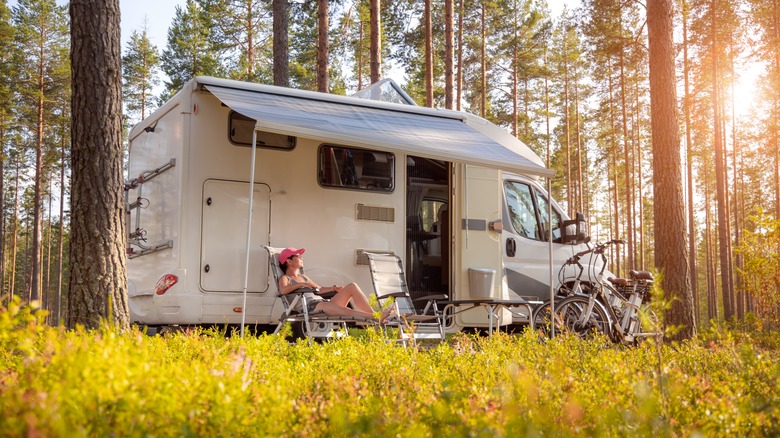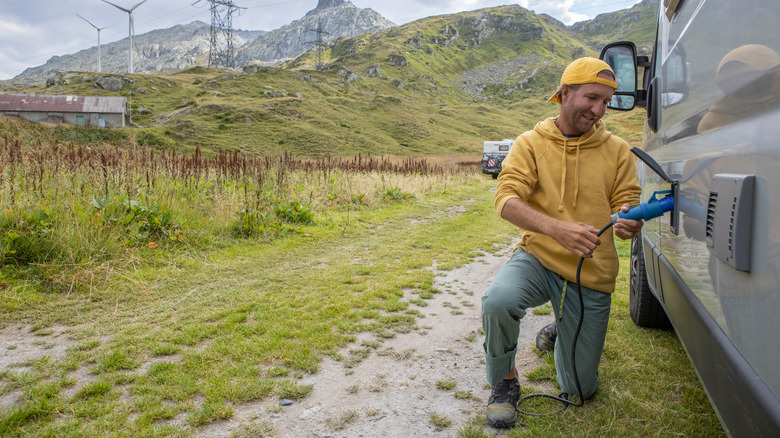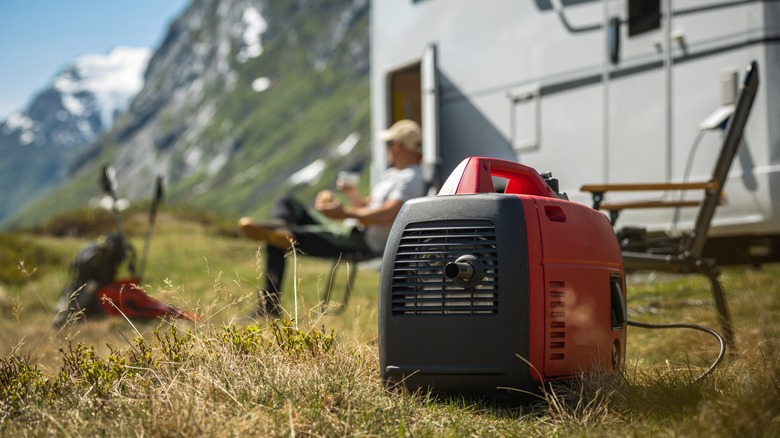How To Safely Hook Up Your RV To A Generator
Taking a trip in an RV or camper van is a popular choice for many people looking to escape the city. But without the right camping equipment, your trip can quickly turn stressful. Generators are an essential camping accessory for providing power to your RV appliances wherever you may be. Connecting your RV to a generator is relatively straightforward; however, several precautions must be taken to keep you and other campers safe.
If you're traveling to a campground, it's important to check if there are any regulations in place regarding generator use; for example, some campgrounds have decibel limits, so you'll want to verify how loud your generator is with the manufacturer before beginning your trip.
Another step to take before setting off is to ensure your generator model can deliver enough power to your RV. For 30-amp RVs, it's recommended to pick a generator that delivers at least 3,500 watts. For 50-amp Class A RVs, you'll want to use a generator between 6000–8000 watts if you have two AC units or between 10,000 and 12,500 watts if you have three AC units. With the right generator for your RV, you'll ensure there is ample power to run your appliances and prevent overload. Let's take a look at how to hook up your RV to a generator safely.
How to hook up your RV to a generator
The method to start your generator will vary depending on the type of generator being used. Generators with a pull chord start require the most physical effort, but they may not be suitable for those with limited mobility or strength.
A hassle-free alternative to pull chord generators is electric start portable generators. Several generators from Ryobi that are worth considering feature an electric start, but they aren't the only company that makes electric generators — many popular generators from major brands also offer electric start models. Electric start generators are far easier to operate, relying on the press of a switch or turn of a key to generate power. Some models feature both an electric starter and a pull chord as a backup method to start the engine.
Here are the steps to connect your RV to a generator:
- To prevent damage to your RV's electrical system, it's important to run the generator for at least five minutes before you plug in your RV. Depending on the generator model, you may need to use an attachment to connect your RV cable to your generator.
- Another important safety measure is to use a surge protector, an essential safety gadget that helps limit voltage to your devices when surges occur. It acts as a safety buffer between your generator and RV and prevents damage to your devices. Plug the surge protector into your generator's outlet first.
- Attach your RV's cable to the surge protector.
Safety precautions to take before hooking up your RV
Before connecting your RV to a generator, it is important your RV is parked on a flat, flame-resistance surface to prevent potential fires from spreading. As generators produce carbon monoxide (CO) – an odorless, invisible, deadly gas — it's crucial to place your generator at an adequate distance from your RV. While different manufacturers provide varying guidelines, it is recommended to keep your generator at least 20 feet away from campers to prevent the risk of CO poisoning. The exhaust can also become a risk if strong winds are present, so ensure the exhaust is pointing away from you and other campers.
Once the essential safety measures are taken care of, there are a few further safety inspections to complete before hooking up or unhooking your RV:
- Next, make sure the generator has sufficient oil levels, as it may get damaged or stop working if your oil levels are too low.
- Check if the generator's air filter is dirty, and clean it if necessary, as a dirty filter can use up more fuel and release harmful pollutants.
- Before shutting down your generator and unhooking it, turn off all appliances inside your RV and let it run for a few minutes to reduce the power load and allow the oil to cool down.
Hooking up your RV to a generator is an easy process, but like all projects involving high voltages, extra care should be taken.


